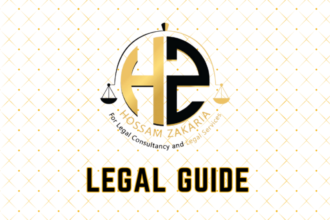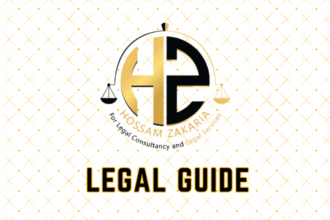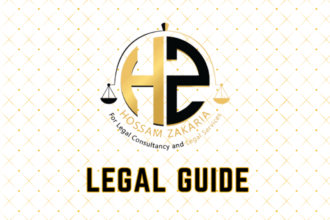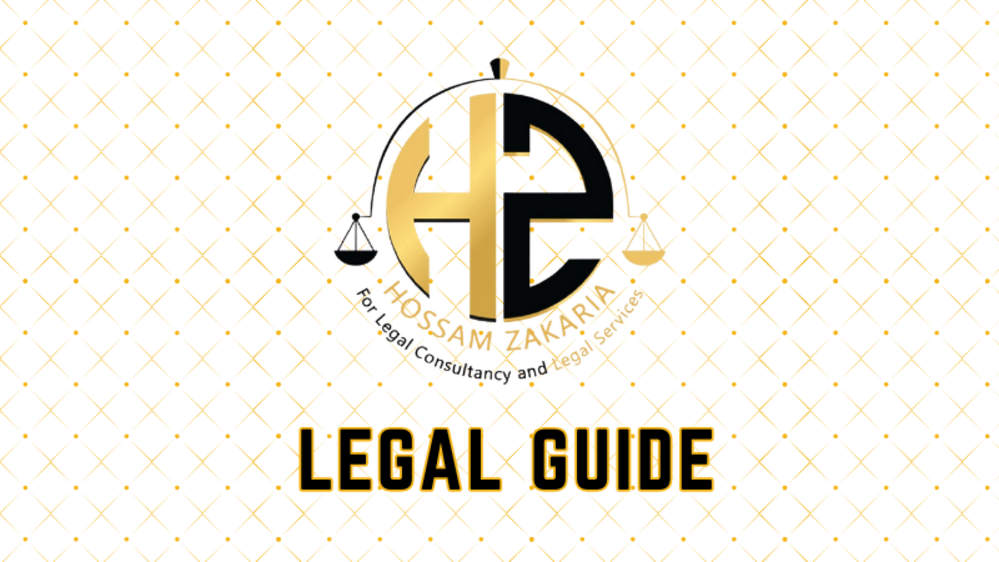Introduction
In recent years, the business landscape of the GCC has witnessed an unprecedented level of legal reform and regulatory harmonization. As part of Vision 2030, the Kingdom of Saudi Arabia (KSA) has introduced sweeping updates to its professional and industrial licensing systems, aimed at attracting regional and international investment, fostering entrepreneurship, and aligning its legal framework with global standards. For UAE-based businesses, executives, and legal practitioners, understanding these changes is more critical than ever. With commercial interests increasingly spanning both the UAE and Saudi Arabia, sound knowledge of licensing rules is indispensable for cross-border compliance, strategic expansion, and regulatory risk management. This article offers an expert guide tailored for the UAE business community, providing an in-depth analysis of the regulatory environment governing professional and industrial licenses in Saudi Arabia, the impact of recent legal updates, and actionable strategies for achieving and maintaining compliance.
Table of Contents
- Overview of Saudi Professional and Industrial Licensing Law
- Recent Legal Updates and Their Significance
- Key Regulatory Authorities and Their Roles
- Licensing Process for UAE Businesses
- Comparative Insight: UAE versus Saudi Licensing Regimes
- Case Studies and Hypothetical Scenarios
- Risks of Non-Compliance and Enforcement Trends
- Compliance Strategies for UAE Organizations
- Conclusion and Forward-Looking Perspective
Overview of Saudi Professional and Industrial Licensing Law
The Regulatory Framework
Saudi Arabia regulates professional and industrial activities through a set of laws, executive regulations, and ministerial decrees. The primary legal instrument governing industrial licensing is Royal Decree M/74 of 2019 (the Industrial Law), complemented by the Ministry of Industry and Mineral Resources’ (MIMR) Executive Regulations. For professional services, regulations are issued under the Commercial Register Law and the Professional Services Licensing Regulations (last consolidated in Ministerial Resolution 1202/1439).
Licensing requirements are designed not only as entry barriers but also as mechanisms to ensure quality, compliance with local workforce quotas, and alignment with national economic development strategies. These frameworks are dynamic, with regular updates to reflect policy changes, risk mitigation, and alignment with Vision 2030 objectives.
Key Legal Provisions
- Mandatory acquisition of relevant licenses prior to commencing any professional or industrial activity.
- Strict application of Saudization (Nitaqat) quotas, particularly for professional sectors.
- Renewal, variation, and revocation powers reserved to relevant ministries and regulatory bodies.
- Prohibition on unauthorized practice, with articulated penalties for infringement under Articles 8–12 of Royal Decree M/74.
Official references: Royal Decree M/74 of 2019; Executive Regulations on Industrial Licensing (MIMR, 2020); Commercial Register Law (Royal Decree M/1 of 2015).
Recent Legal Updates and Their Significance
2023–2025 Legal Amendments
Over the last two years, key reforms have been enacted to streamline licensing, promote foreign participation, and digitalize process management. Notable legal changes include:
- Amended Foreign Investment Regulations (Royal Decree M/72 of 2021): Now permitting 100% foreign ownership in most industrial and professional sectors, subject to compliance with sector-specific rules.
- Unified License Portal (MIMR Circular 203/2022): Launch of an integrated e-licensing platform reducing processing times and enhancing procedural transparency.
- Increased Alignment with GCC Standards (GCC Cabinet Resolutions 13/2023): Harmonization of industrial safety, environmental, and import-export licensing requirements across the GCC.
- Stricter Saudization Requirements (Ministerial Decision 146/2024): Revision of minimum Saudi workforce quotas for licensed entities, significantly impacting service firms operated by foreign investors.
- Changes in License Renewal Procedures (MIMR Executive Bulletin Q2/2024): Digital-only renewals with automated compliance checks for operational, environmental, and labor-related obligations.
Comparative Table: Old vs New Licensing Regulations
| Aspect | Pre-2023 Rules | Post-2023 Updates |
|---|---|---|
| Foreign Ownership | Max 75% (except joint ventures) | Up to 100%, subject to new screening |
| Application Process | Manual, paper-based filings | Unified digital portal (e-Licensing) |
| Saudization | Lower quotas; exemptions available | Mandatory higher quotas; fewer waivers |
| License Validity | 1–3 years, with in-person renewal | Annual renewal, digital submission only |
| Enforcement | Ad hoc inspections, fines | Real-time digital monitoring, automatic penalties |
Consider adding a process flow diagram visualizing the digitalized licensing journey for foreign investors (Alt text: e-Licensing Process Saudi Arabia).
Key Regulatory Authorities and Their Roles
Ministry of Industry and Mineral Resources (MIMR)
MIMR is the principal body issuing industrial licenses, overseeing compliance with operational, environmental, and labor standards. It is also responsible for executing the digital transformation of industrial licensing and managing the e-licensing portal.
Saudi Arabian General Investment Authority (SAGIA, now Invest Saudi)
Invest Saudi remains the primary agency for initial foreign investment licensing, pre-approving UAE-based and other foreign companies for professional and industrial activities under the Investment Law (Royal Decree M/1 of 2018).
Other Stakeholders
- Ministry of Commerce: Commercial registration and professional services licensing.
- Ministry of Human Resources and Social Development (MoHRSD): Workforce quotas, Saudization compliance.
- Zakat, Tax and Customs Authority: Tax residency certificates and compliance for cross-border operations.
- Municipalities: Zoning approvals and local compliance for industrial premises.
Visual suggestion: Authority responsibility matrix – tabular form or infographic (Alt text: Saudi licensing authorities).
Licensing Process for UAE Businesses
Entry Requirements and Procedures
For UAE businesses considering entry into the Saudi market, the following general steps apply:
- Preliminary Assessment: Identification of sector-specific requirements and necessary license categories (professional, industrial, or commercial).
- Investment License Application: Application submitted via the Invest Saudi portal, including certified corporate documents, shareholding details, and KYC information.
- Commercial Registration: Post-approval, registration with the Ministry of Commerce (via the Business Centre or online service “Marouf”) is compulsory.
- Industrial License Application (if applicable): For manufacturing, further submission via the MIMR portal, including environmental impact, safety, and capacity disclosures.
- Saudization Plan Submission: Filing a workforce nationalization plan with MoHRSD, in line with current Nitaqat scheme.
- Municipal and Zoning Approvals: Site-specific approvals for plants or offices, confirming compliance with local urban regulations and infrastructure standards.
- Final Grant and Commencement: Digital issuance of licenses and initiation of business activities after successful fulfillment of all conditions.
Key Documentation
- Memorandum and Articles of Association (duly attested)
- Board and shareholder resolutions (certified)
- Proof of physical address in Saudi Arabia
- Workforce plan and Saudization commitments
- Environmental and safety assessments (for industry)
Practical Insights for UAE-Based Entities
It is crucial to engage Saudi-licensed local consultants or legal representatives to navigate regulatory processes, particularly for nuanced interpretations relating to eligibility, quotas, or sectoral restrictions. Pre-clearance from Invest Saudi can expedite the process, and the proactive establishment of KSA-domiciled bank accounts and tax registrations minimises operational risks post-licensing.
Comparative Insight: UAE versus Saudi Licensing Regimes
Divergences and Convergences in Regulatory Approach
| Feature | UAE Model | Saudi Model |
|---|---|---|
| Ownership Rules | Up to 100% foreign ownership in most Free Zones and onshore (Federal Decree Law No. 26 of 2020) | Post-2021: Up to 100%, subject to additional sector reviews |
| License Types | Extensive: Commercial, Industrial, Professional, Freelance | Narrowly tailored to activity (professional, industrial, commercial) |
| Renewal Process | Mostly digital, annual/biannual depending on emirate | Fully digital, annual renewal with integrated compliance checks |
| Localization Requirements | Emiratization quotas by sector (MoHRE Cabinet Resolution 279/2022); generally tiered | Nitaqat with higher minimums, stricter enforcement in industrial sector |
| Compliance Monitoring | Random audits, primarily document-based | Automated, real-time monitoring via unified digital platforms |
Legal Implications for Cross-Border Enterprises
UAE businesses must not assume that UAE-compliant structures or processes are directly transferable to Saudi Arabia. Each jurisdiction maintains distinct rules concerning shareholding, permitted activities, local agent requirements, and data sharing. Careful “localization” of compliance is essential to avoid inadvertent breaches, particularly in employment and tax reporting.
Visual suggestion: Compliance checklist for UAE businesses expanding to Saudi Arabia (Alt text: Saudi compliance checklist for UAE companies).
Case Studies and Hypothetical Scenarios
Case Study 1: Manufacturing Entry by UAE Conglomerate
A UAE-based industrial conglomerate seeks to start food packaging operations in Riyadh. By following the digital application route, pre-securing environmental clearances, and implementing a robust Saudization plan, the company secures its license within three months. However, due to an incomplete tax registration, a penalty is automatically triggered under MIMR e-portal protocols. Lesson: Preemptive fulfillment of multi-agency compliance is critical.
Case Study 2: HR Consultancy Seeking Professional License
A Dubai-based HR advisory firm applies for a professional license via Invest Saudi but faces delays due to insufficient evidence of experience in Saudi labor law and non-compliance with the new Nitaqat requirements. Resolution is achieved through the secondment of a Saudi national partner and an updated workforce plan. Lesson: Localization—both on legal strategy and personnel—remains vital even with regulatory liberalization.
Hypothetical: Digital Services Start-up
An Abu Dhabi tech firm aims to launch a digital platform in Saudi Arabia, contemplating whether to operate through a local agent or as a fully foreign-owned entity. Given post-2023 liberalization, it can opt for full ownership but must comply with stricter consumer data localization laws and undergo cyber-certification under KSA’s National Cybersecurity Authority. Failure to implement prescribed cybersecurity protocols risks immediate suspension of its operational license.
Risks of Non-Compliance and Enforcement Trends
Legal and Commercial Risks
- Administrative Fines: Automated penalties for late renewals, labor violations, and data breaches, ranging from SAR 20,000–500,000 per incident (under Royal Decree M/74).
- License Suspension or Revocation: Immediate enforcement for repeat offenders or those in “strategic” sectors (e.g., energy, food, healthcare).
- Criminal Liability: Deliberate misrepresentation or fraud in licensing applications may attract prosecution and custodial sentences.
- Reputational Damage: Public listing of non-compliant entities on government portals.
Enforcement Trends (2023–2025)
- Shift toward real-time monitoring and escalation of automated enforcement (notably via MIMR digital tools).
- Joint task forces involving MoHRSD, municipalities, and customs to inspect and enforce workforce, safety, and tax rules.
- Growing scrutiny of cross-border businesses for VAT, customs, and environmental compliance.
Table: Penalty Comparison – Pre- and Post-Update
| Breach Type | Pre-2023 Penalty | Post-2023 Penalty |
|---|---|---|
| Unlicensed activity | SAR 50,000 fine, warning | SAR 200,000 fine, immediate suspension |
| Saudization violation | SAR 30,000 fine, grace period | SAR 100,000 fine, license revocation for repeated offences |
| Tax non-compliance | SAR 25,000 admin penalty | Up to SAR 100,000, plus blacklisting |
Visual suggestion: Penalty escalation pyramid—depicting the progression from administrative fines to license loss (Alt text: Saudi penalty escalation chart).
Compliance Strategies for UAE Organizations
Best Practices for Regulatory Compliance
- Engage Saudi Legal Advisors: Early consultation ensures correct identification of applicable regimes and compliance gaps.
- Automate Compliance Monitoring: Implement digital tools compatible with KSA systems for document management, labor tracking, and renewal alerts.
- Develop Tailored Saudization Plans: Go beyond minimum quotas and utilize government incentives for training and local workforce integration.
- Invest in Cybersecurity and Data Localization: Particularly essential for digital services providers, to align with KSA’s cybersecurity certification standards.
- Regular Internal Audits: Schedule quarterly reviews of licensing, labor, environmental, and tax compliance metrics.
- Maintain Clear Cross-Jurisdictional Records: Structure intercompany agreements and document sharing in formats that are easily adaptable to both UAE and Saudi audits.
Visual suggestion: Compliance checklist or timeline for license-renewal cycles (Alt text: Licensing compliance checklist Saudi Arabia).
Conclusion and Forward-Looking Perspective
Legal updates to Saudi Arabia’s professional and industrial licensing rules mark a watershed for cross-border business in the GCC. As regulatory regimes converge yet retain distinct local features, proactive compliance and strategic localization are more vital than ever for UAE organizations. In the coming years, continued digitization, heightened Saudization, and dynamic enforcement will define Saudi’s licensing environment.
UAE businesses must not only adapt to technical legal changes but also embrace comprehensive risk management and workforce integration strategies, leveraging digital systems and local expertise. By remaining vigilant, regularly auditing compliance postures, and anticipating regulatory moves, UAE entities can capitalize on the Kingdom’s expanding market while minimizing legal and operational exposures.
Professional legal counsel remains indispensable. With regular updates expected through 2025—especially in Saudization, digital licensing, and cross-border data regulations—the optimal path for businesses is ongoing engagement with qualified legal advisors and a mindset of continual process refinement.
For tailored advice and step-by-step support in Saudi regulatory compliance, UAE organizations should seek consultation from law firms with proven cross-border expertise and established presence in both jurisdictions.



